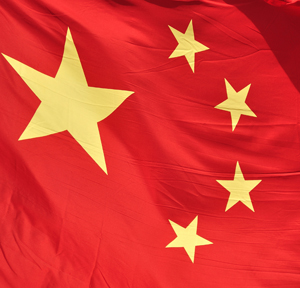White Papers
Retail Therapy Boosting China's Economy - DBS

Efforts to re-balance China’s export-driven economy towards domestic consumption is good news for the consumer sector, Singapore’s DBS bank said in its recent report, titled, China in Transition.
“Under the current official blueprint for the Chinese economy – the 12th Five-Year Plan – the government aims to boost disposable household income and achieve a fairer distribution of income. This should help to enhance overall spending power and retail sales growth,” said Mavis Huil, equity analyst, DBS, Hong Kong.
Specifically, the plan calls for a 13 per cent annual growth of minimum wages, further increases in income tax thresholds, improved health care benefits, increased social housing and greater job creation. All these initiatives are geared to bolster the growth of China’s middle class.
According to DBS, the bet is that rapid middle class expansion will drive the domestic consumption that China needs in order to deliver sustainable economic growth. Its middle class is forecasted to gobble up 13 per cent of global middle class consumption by 2020, from its current single-digit levels (4 per cent in 2009).
Assisting this transition is China’s rapid urbanisation that has created new markets in lower-tier cities, which has in turn prompted leading corporations to expand into these territories. As first-movers, these firms can augment their customer base and establish greater economies of scale. For some companies, this comes as a welcome development, as profit margins at larger cities are shrinking amid intensifying competition and rising rents.
Brand equity will become increasingly important as consumers become more sophisticated and demanding. Global brands and successful domestic labels are poised to benefit most from this trend, given their relatively low market base and the increasing affluence of Chinese consumers.
DBS said the cosmetics segment could see solid growth, as it has proven in the past to be a resilient performer even in bad economic times. Home appliances are shaping as less attractive given that most products are relatively commoditised and retailers face intensifying competition from online rivals.
Admittedly, DBS said, retail sales performance has slowed in recent months due to fading consumer sentiment influenced by uncertain global economic conditions. However, this could also be explained by a higher base effect overhanging from last year, suppressing near-term sales growth momentum. Looking ahead, rising disposable income, a strong yuan and widening availability of credit should encourage Chinese consumers to spend. And low inflation could provide some scope for prices to be lifted without hurting effective demand and therefore provide a boost to retail sales performance.
Overall, DBS expects retail sales in China to sustain between 8 and 10 per cent annual growth rates over the medium term, totalling at least RMB30 trillion by 2018, after taking into account the strong spending by China mainland consumers in Hong Kong and Macau for tax-free product offerings, and potentially a weaker HKD following the recent announcement of the third round of quantitative easing.
